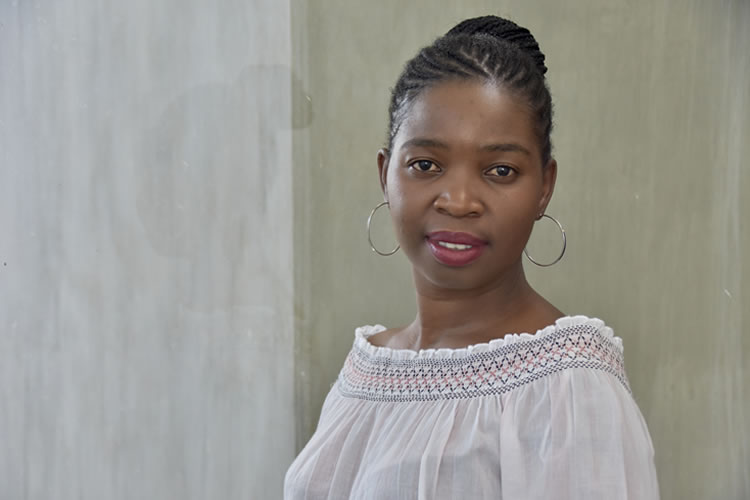The Centre for Human Rights, Faculty of Law, University of Pretoria, welcomes the launch of the "Principles and Guidelines for the Use of Digital and Social Media in Elections in Africa" developed by the Association of African Electoral Authorities (AAEA). The Guidelines and Principles were officially launched by Deputy President of South Africa Paul Mashatile. This notable milestone underscores the significance of integrating digital advancements while steadfastly upholding democratic values.
This non-binding but persuasive instrument represents a commendable human rights-inspired initiative. Its purpose is to fill the normative gap surrounding the utilisation and implications of digital and social media in elections across the African continent. It is rooted in the understanding that individuals are entitled to the same human rights online as offline. It also acknowledges that access to the internet, including digital and social media, can directly and indirectly enhance fundamental rights. The Centre for Human Rights commends the AAEA for its proactive approach to addressing the dynamic landscape of election communication and information dissemination. This forward-thinking endeavour aligns with the Centre's commitment to promoting and safeguarding human rights in the ever-evolving digital sphere.
The Principles and Guidelines have been meticulously formulated to bolster the capabilities of Election Management Bodies (EMBs) and other pertinent electoral stakeholders. The aim is to empower them to effectively leverage the benefits of social media while concurrently addressing the challenges posed by the negative ramifications of emerging digital technologies.
This strategic framework is designed to facilitate a proactive and informed approach to navigating the complexities inherent in the digital landscape, ensuring the integrity and fairness of electoral processes.
The overarching objectives of these Principles and Guidelines are as follows:
- Contribute to the integrity of electoral processes in Africa by guiding EMBs and other relevant electoral stakeholders in identifying opportunities to promote access to electoral information and address challenges in dealing with harm to digital human rights, in particular potentially harmful digital contents and business practices that threaten the integrity of electoral processes.
- Foster policy development on digital and social media in elections by EMBs, Regional Economic Communities (RECs) and member states.
- Serve as a resource for digital and social media (including digital messaging services) in their policies and processes dealing with online content relevant to elections in Africa.
- Inform regulatory processes under development or review for digital and social media in the context of elections in a manner that is consistent with international human rights standards and the African Charter on Human and Peoples’ Rights.
This comprehensive document, is based on international human rights laws and standards, such as the Universal Declaration of Human Rights, International Covenant on Civil and Political Rights, the Convention on the Elimination of Discrimination Against Women, the African Charter on Human and Peoples’ Rights, the Organisation of African Unity (OAU)/African Union (AU) Principles for Democratic Elections in Africa, the African Charter on Democracy, Elections and Governance, the United Nations Guiding Principles on Business and Human Rights, the African Union Convention on Cyber Security and Personal Data Protection, the African Commission on Human Rights and Peoples’ Rights (ACHPR) Guidelines on Access to Information and Elections in Africa, the Windhoek +30 Declaration on Information as a Public Good, the ACHPR Resolution on the Protection of Women Against Digital Violence in Africa, the ACHPR Resolution on Business and Human Rights in Africa, and the 2019 Addis Ababa Declaration on Journalism and Elections in Times of Disinformation.
The fundamental principles integral to this framework encompasses the right to equality and non-discrimination; free, fair and credible elections; freedom of opinion and expression; access to information; freedom of association and assembly; right to privacy; protection of the rights of women in the context of elections; protection of ethnic, cultural and linguistic rights; right to remedy. The key guidelines encapsulate the obligations of the States, EMBs, regulatory bodies, political parties and candidates, African traditional institutions and religious bodies, civil society organisations, journalists and the news media, digital intermediaries, and the digital and social media.
Regarding accountability mechanisms, the Guidelines and Principles underscore the imperative that "all relevant laws should be enforced without discrimination." Furthermore, they emphasise the collaboration of relevant stakeholders to guarantee the comprehensive protection and realisation of all rights affected by digital and social media throughout the electoral cycle. The overarching objective is to ensure that elections are conducted with utmost integrity, fostering an environment characterised by freedom, fairness, and credibility.
The Centre for Human Rights asserts that the incorporation of these principles and guidelines is paramount for cultivating confidence in electoral processes, safeguarding the bedrock of democratic values, and ensuring the unassailable right of citizens to make well-informed choices during electoral proceedings. The steadfast adherence to these standards not only fortifies the integrity of electoral systems but also serves as a testament to our unwavering commitment to the principles of democracy and the preservation of citizens' fundamental rights.
Download Principles and Guidelines for the Use of Digital and Social Media in Elections in Africa:
For more information, please contact:
Expression, Information and Digital Rights Unit
Tel: +27 (0) 12 420 4199
hlengiwe.dube@up.ac.za



